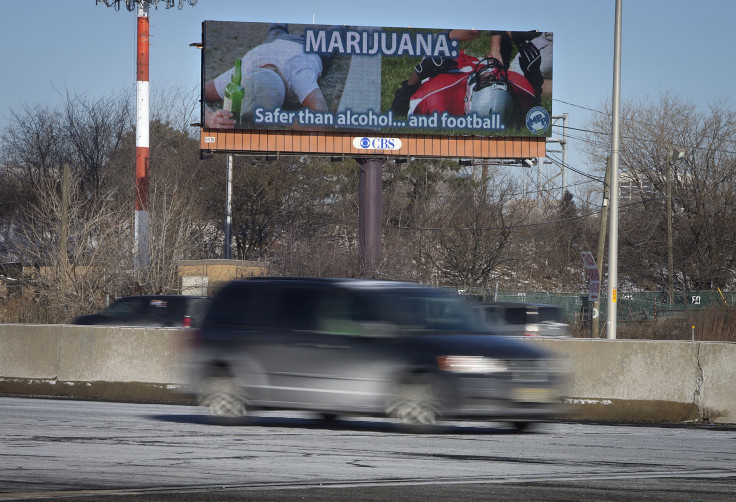Is Driving While High Dangerous? Fatal Car Accidents Involving Marijuana Triple Over 10 Years

Many pot smokers will tell you that driving under the influence of marijuana is actually safer than driving sober, their logic being that pot smokers tend to drive under the speed limit and use their paranoia to focus on the road. But new research is showing a darker side to the popular conviction that driving while stoned is no big deal.
According to a recent study of marijuana use and car accidents, fatal crashes involving people who were stoned have tripled over the last 10 years. The report, published in the American Journal of Epidemiology, found that the incidence of car crash victims with pot in their systems jumped from 4.2 percent in 1999 to 12.2 percent in 2010.
"Currently, one of nine drivers involved in fatal crashes would test positive for marijuana," study co-author Dr. Guohua Li, director of the Center for Injury Epidemiology and Prevention at Columbia, told HealthDay. "If this trend continues, in five or six years non-alcohol drugs will overtake alcohol to become the most common substance involved in deaths related to impaired driving."
The study found that alcohol contributed to roughly the same percentage of traffic fatalities each year, about 40 percent, but that driving under the influence of other substances increased from 16 percent of traffic deaths in 1996 to 28 percent in 2010. Researchers found that marijuana was the most prevalent drug implicated in the uptick.
Researchers looked at data from the Fatality Analysis Reporting System for the years 1999 to 2010. The team analyzed the toxicology results of some 23,500 drivers from California, Hawaii, Illinois, New Hampshire, Rhode Island and West Virginia who were killed in car accidents.
“The increase in the prevalence of non-alcohol drugs was observed in all age groups and both sexes,” researchers wrote. “These results indicate that non-alcohol drugs, particularly marijuana, are increasingly detected in fatally injured drivers.”
So how dangerous is driving while high? The short answer is, experts still haven’t come to a consensus on the issue. While previous studies on the topic have suggested that marijuana use may impair coordination and reaction abilities, other studies have proposed that driving while stoned showed no significant change in the risk of being involved in a crash.
More recently, a news station in Washington, a state which legalized recreational marijuana use in 2012 – along with Colorado – held an experiment in which they tested the driving abilities of three volunteers who were high.
Drivers who were four to seven times over the state’s legal limit for driving under the influence of marijuana were sent out on a closed course. Under the supervision of law enforcement and driving school instructors, the volunteers, who were sufficiently high by the time they got behind the wheel, were asked to negotiate the course while a driving instructor gauged their facility to operate the vehicle.
Surprisingly, it took the subjects’ smoking nearly a gram of pot before the driving instructor deemed them unfit to drive. The results of the driving experiment gives support to those who say driving while stoned is far less dangerous than driving drunk.
“Here’s what we do know,” Jenny Hollander writes for Bustle. “Stoned drivers behave differently from drunk drivers. Stoned drivers are more aware that they’re intoxicated — the opposite applies for drunk drivers — and so they tend to actually drive more slowly and carefully. Therefore, drivers who are a little stoned are generally safer drivers than those who are a little drunk. As a rule, drunk driving has been understood to be far more dangerous than driving when high.”
Still, not everyone is convinced that high driving is safe driving. Jan Withers, national president of Mothers Against Drunk Driving, or MADD, certainly demurs.
"MADD is concerned anytime we hear about an increase in impaired driving, since it's 100 percent preventable," Withers told HealthDay. "When it comes to drugged driving versus drunk driving, the substances may be different but the consequences are the same -- needless deaths and injuries."
© Copyright IBTimes 2024. All rights reserved.












